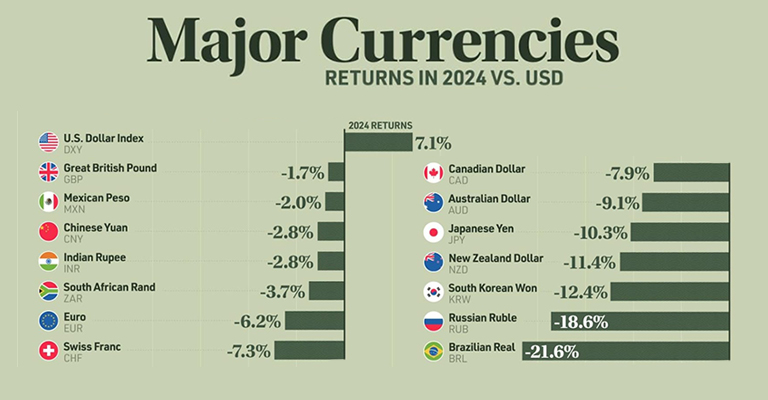FinTech is the amalgamation of two words – Financial and Technology.
The name itself suggests that FinTech relates to the development and rise in financial technology that has been seen over the recent years.
This revolutionizing phenomenon has taken center stage in the world of finance and has changed the entire outlook of individuals in managing their money!
The traditional financial industry saw a seismic shift in the interaction of individuals with money as technology-driven innovations gave birth to the rise of Fintech.
This blog will help you understand what is FinTech, the drivers responsible for the rise of FinTech, the impact of FinTech across various sectors, the opportunities offered by FinTech as well as the future of FinTech.
What Is FinTech?
FinTech or Financial Technology refers to the application of innovation-driven, cutting-edge technology to automate as well as enhance financial services.
Financial services that are enhanced with the introduction of FinTech include digital payments, robo-advisors, InsurTech, peer-to-peer lending, blockchain and many more.
The rise of FinTech led to financial services being more accessible, efficient as well as cost-effective.
Drivers Responsible For The Rise Of FinTech
The rise of FinTech was propelled by several factors making it a niche market as well as a global powerhouse.
Some of the drivers or factors responsible for the rise of FinTech include the following –
Technological Advancements
- Mobile Technology – With almost every individual owning a smartphone, everything is available with a single touch of their finger. The rise of mobile technology has helped FinTech bring financial services on the go for users across the world!
- Big Data & Analytics – FinTech uses big data and analyzes it to gain valuable insights into the behaviour of the customer helping them to provide personalized services and ensuring that the risk assessments provided are more accurate and precise.
- Artificial Intelligence & Machine Learning – With the help of AI and Machine Learning, the speed and efficiency of financial processes are enhanced. Additionally, users can also get customer support and advice from robo-advisors and chatbots and feel secure as a result of fraud detection systems.
Changing Behaviour Of The Consumer
- Digital Natives – With the current generation moving towards a completely digital world, consumers strive for a seamless and user-friendly interface to complete their financial transactions. Hence, the tech-savvy generation created a need and demand for digital financial solutions.
- Convenience – As with all other online services, FinTech also offers the consumers convenience of carrying out financial activities at the go from anywhere and anytime.
Regulatory Support & Open Banking
- Regulatory Sandboxes – Regulatory sandboxes were provided for FinTech startups implying that they carried out their innovations in a controlled environment without the burden of full regulations.
- Open Banking – To make the financial landscape more innovative and competitive, open banking was promoted for seamless and secure data sharing with the collaboration of FinTech firms and traditional banks.
Global Connectivity
- Blockchain & Cryptocurrencies – Working with blockchain technology (a decentralized system) that underpins cryptocurrencies, FinTech offers its customers transparent and secure transactions.
- Cross-Border Transactions – With the rise of FinTech, international money transfers have become more cost-effective with reduced barriers leading to seamless cross-border transactions.
Impact Of FinTech Across Various Sectors
Bringing the financial world at the tip of your fingers, FinTech has had a major impact on all the sectors of the world.
Be it investing in stocks or completing digital payments on e-commerce platforms, the rise of FinTech has been seen all across the online world.
Out of all the sectors, the following sectors have had the most impact from the rise of FinTech –
- Banking & Payments – The rise of FinTech has considerably reduced the visits of customers to traditional banks. With digital banking services and alternative payment methods, FinTech has led to the popularity of mobile payment platforms, digital wallets as well as peer-to-peer lending.
- Investment – With the rise of FinTech, customers are able to have automated and cost-effective investment portfolios due to the emergence of robo-advisors and chatbots. Additionally, investment has become easier for a very broad audience who may or may not be well-versed in investing by reducing the minimum capital required to make an investment.
- Wealth Management – Traditional wealth management platforms have also been transformed by opening new avenues for decentralized finance and crowdfunding with the help of blockchain-based tokens as well as smart contracts.
- Insurance (InsurTech) – InsurTech has managed to streamline the insurance process, improve customer experience as well as enhance risk assessment by embracing technology. Insurers can also customize policies and pricing using real-time data provided by IoT devices like smart sensors and wearables.
- Real Estate – FinTech has made the real estate markets more inclusive and liquid by providing investors with new ways to participate by offering crowdfunding platforms to carry out activities like property tokenization, real estate investment, and digital mortgage processes.

Opportunities Offered By FinTech
With the rise of FinTech, a lot of areas in financial services have a great opportunity to expand and improve.
Some of the opportunities offered by FinTech include –
- Financial Inclusion – FinTech provides a chance for everyone to be included in the digital age of finance by bridging the gap between the banked and non-banked population of the world.
- Innovation In Emerging Markets – With the emergence and rise of FinTech, innovations can be seen in many of the emerging markets which were considered limited for the infrastructure of a traditional bank.
Future Of FinTech
With the continuous rise of FinTech, it is important that individuals look out for the following trends in the coming years –
- Central Bank Digital Currencies (CBDCs) – Central banks from around the world are exploring the possibility of issuing their own digital currency which would transform the face of payments & financial transactions.
- Sustainability & Green Finance – Prioritizing ESG factors while making investment decisions has gained popularity leading to larger investments in green and sustainable finance.
- Decentralized Finance (DeFi) – Emergence of a range of DeFi applications that would make lending, borrowing as well as trading simpler for the consumer without the presence of traditional intermediaries.
- Continued Integration of AI and Blockchain – With the continued integration of AI and blockchain technologies, the growth of FinTech is inevitable resulting in enhanced efficiency, security as well as overall experience of the user.
Conclusion
The transformative power of technology has been the major reason for the rise of FinTech.
The manner in which FinTech has been accepted broadly ensures that the innovations and convenience provided by FinTech are here to stay for long till better innovations are introduced.




